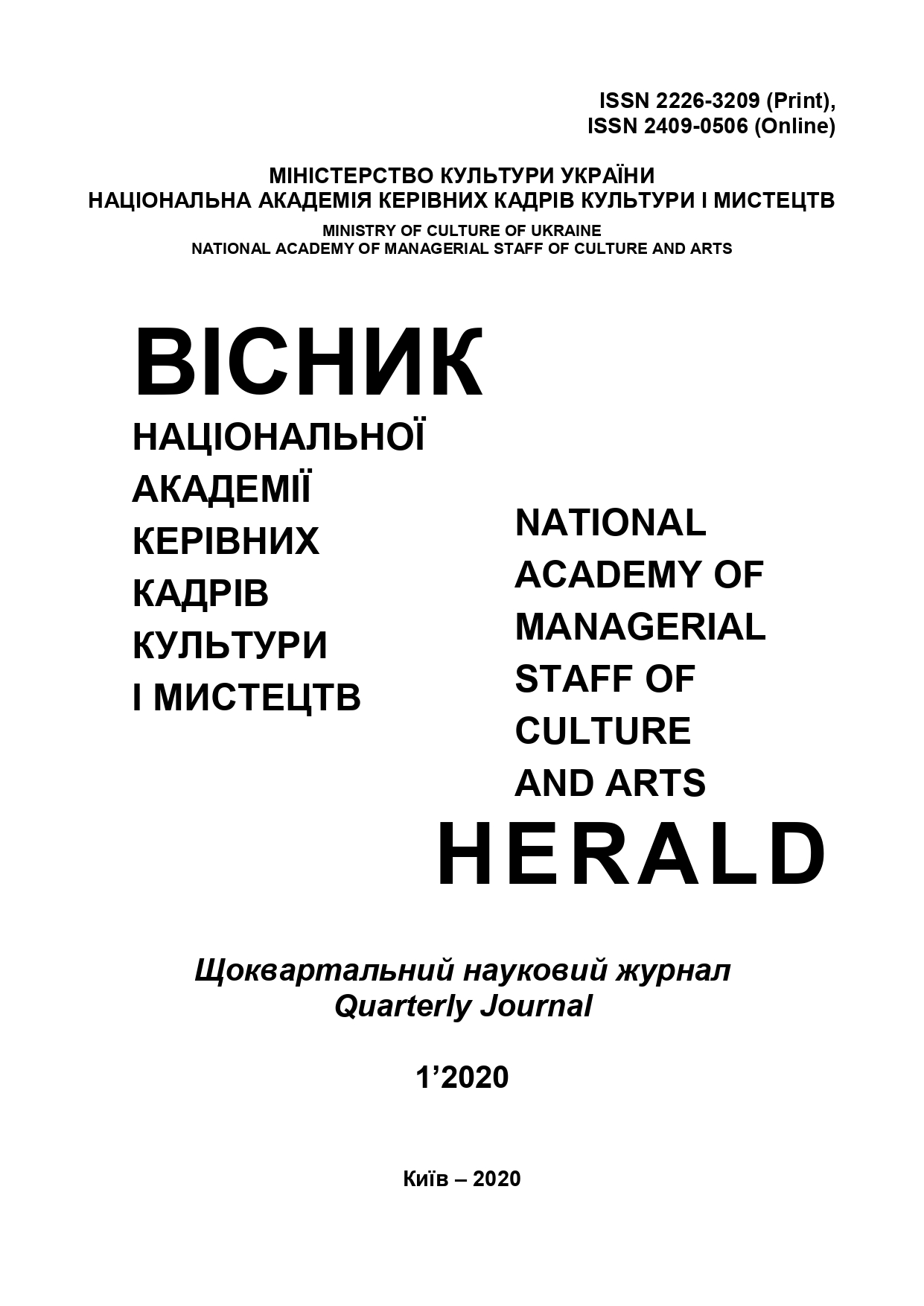Інтерпретація культурної події в умовах соціальних змін: український вимір
Interpretation of a cultural event in conditions of social changes: Ukrainian dimension
Author(s): Yurii BoreikoSubject(s): Sociology of Culture, Hermeneutics, Philosophy of History
Published by: Національна академія керівних кадрів культури і мистецтв
Keywords: cultural event; narrative; interpretation; crisis; subject; society; transformation;
Summary/Abstract: The purpose of the article is to determine the semantic potential of interpreting a cultural event in contemporary Ukrainian society in conditions of social change, taking into account the ability of socio-cultural narratives to construct different versions of perception of reality. The methodology is based on the use of hermeneutic interpretation methods (to clarify the meanings and significance of a cultural event), comparative analysis (to compare the content and context of the creation of socio-cultural narratives), structural and functional method (to reveal the significance of a cultural event in the functioning of social institutions). The scientific novelty of the results obtained is to identify the consequences of the cultural events interpretations' conflict in Ukrainian society, which is accompanied by inadequate symbolization of the description of events, the selectivity of concepts, combinations of statements, confrontation of concepts engaged by ideological settings, own or corporate interests of interpreters. Conclusions. In conditions of social upheaval, cultural events become the point of various interpretations intersection. The socio-cultural narrative is aimed not only at the search and definition of meanings, the construction of the subjects' behavior scenarios, but also has a decisive influence on the vector of society development, the social discourse formation. Since every socio-cultural narrative claims to be exceptional, including the belief in the correctness of its own version of the understanding of the events, the narratives' collision and their interpretations, which becomes a conflict of consciousness and memory of different generations or worldviews representatives, is inevitable.
Journal: Вісник Національної академії керівних кадрів культури і мистецтв
- Issue Year: 2020
- Issue No: 1
- Page Range: 3-7
- Page Count: 5
- Language: Ukrainian

